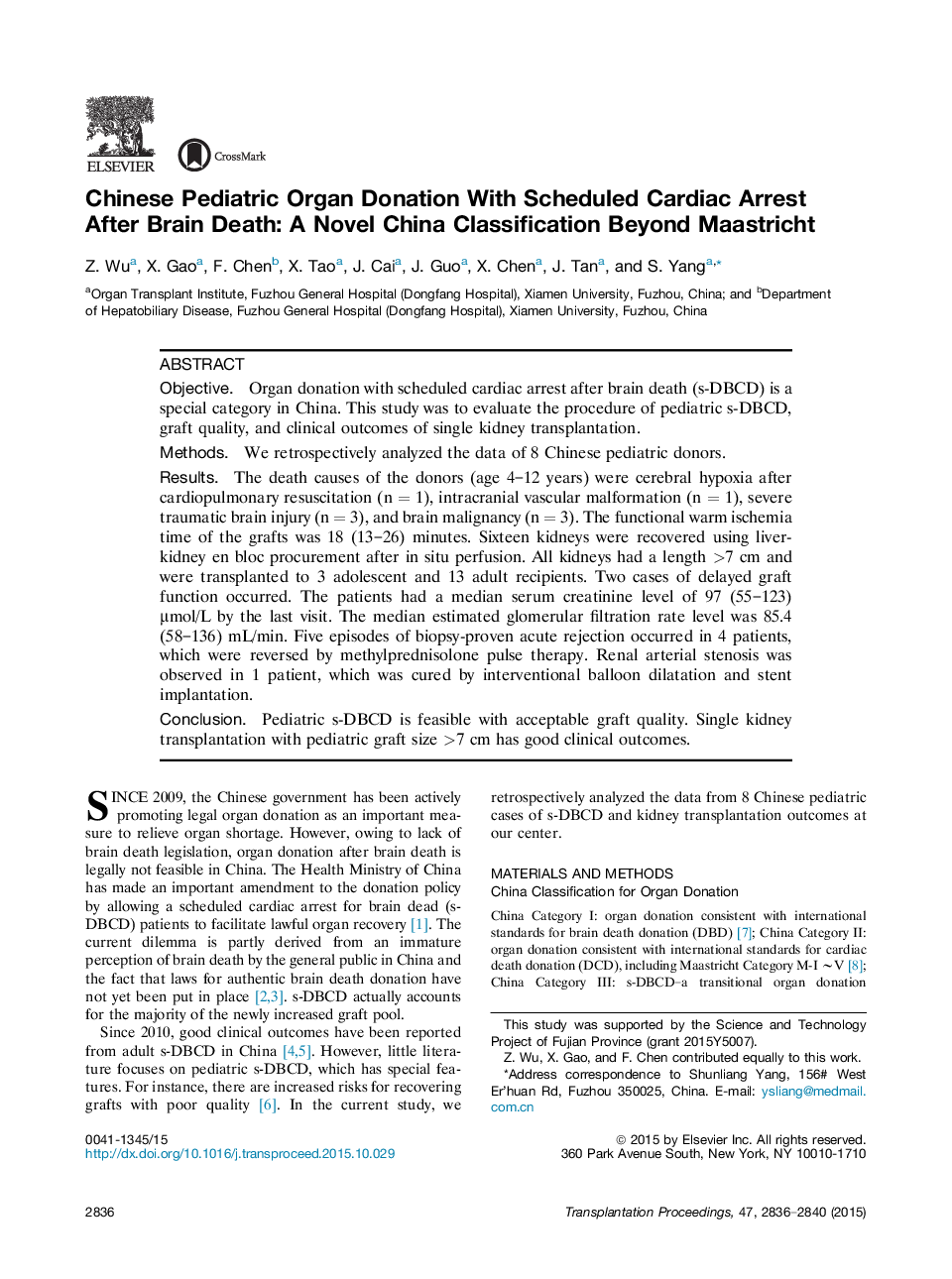| Article ID | Journal | Published Year | Pages | File Type |
|---|---|---|---|---|
| 4255829 | Transplantation Proceedings | 2015 | 5 Pages |
ObjectiveOrgan donation with scheduled cardiac arrest after brain death (s-DBCD) is a special category in China. This study was to evaluate the procedure of pediatric s-DBCD, graft quality, and clinical outcomes of single kidney transplantation.MethodsWe retrospectively analyzed the data of 8 Chinese pediatric donors.ResultsThe death causes of the donors (age 4–12 years) were cerebral hypoxia after cardiopulmonary resuscitation (n = 1), intracranial vascular malformation (n = 1), severe traumatic brain injury (n = 3), and brain malignancy (n = 3). The functional warm ischemia time of the grafts was 18 (13–26) minutes. Sixteen kidneys were recovered using liver-kidney en bloc procurement after in situ perfusion. All kidneys had a length >7 cm and were transplanted to 3 adolescent and 13 adult recipients. Two cases of delayed graft function occurred. The patients had a median serum creatinine level of 97 (55–123) μmol/L by the last visit. The median estimated glomerular filtration rate level was 85.4 (58–136) mL/min. Five episodes of biopsy-proven acute rejection occurred in 4 patients, which were reversed by methylprednisolone pulse therapy. Renal arterial stenosis was observed in 1 patient, which was cured by interventional balloon dilatation and stent implantation.ConclusionPediatric s-DBCD is feasible with acceptable graft quality. Single kidney transplantation with pediatric graft size >7 cm has good clinical outcomes.
